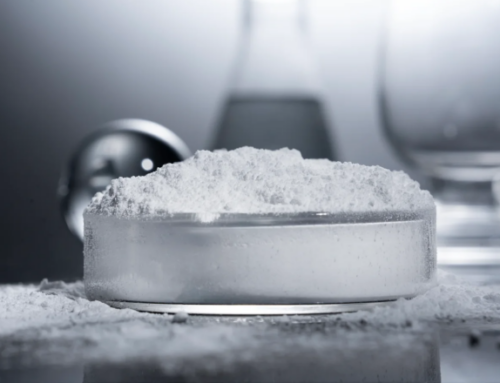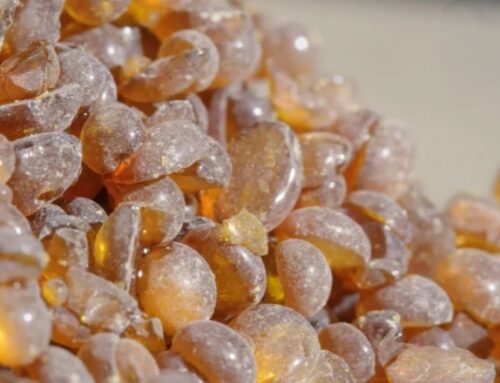Nano calcium carbonate, as a nano material with unique properties, is causing a wave of innovation in many fields with its outstanding characteristics. From traditional industrial manufacturing to cutting-edge high-tech applications, the presence of nano calcium carbonate is ubiquitous, bringing significant improvements and breakthroughs to various industries.

1.Magical Assistance in the Plastic Industry
In the plastic industry, nano calcium carbonate can be regarded as a “magical assistant”. Its addition can significantly improve multiple properties of plastic products.
Firstly, nano calcium carbonate can significantly enhance the rigidity and toughness of plastics. Traditional plastic materials often have certain limitations in terms of strength, while the fine particles of nano calcium carbonate can be uniformly dispersed in the plastic matrix, forming an effective reinforcement structure. These nanoscale particles are like tiny pillars that can share and transmit stress when subjected to external forces, greatly improving the tensile strength, flexural strength, and impact resistance of plastics. This enables plastic products to maintain lightness while also possessing higher durability, able to withstand more demanding usage conditions.
Secondly, nano calcium carbonate can effectively improve the heat resistance of plastics. Plastic products used in some high-temperature environments, such as automotive parts, electrical enclosures, etc., have high requirements for heat resistance. The presence of nano calcium carbonate can hinder the movement of plastic molecules, reduce the thermal vibration of molecular chains, and thus increase the thermal deformation temperature and Vicat softening point of plastics. This makes plastic products less prone to deformation and softening in high temperature environments, ensuring their stability and reliability.
In addition, nano calcium carbonate can also help reduce the cost of plastic products. Due to its relatively low price and excellent reinforcement effect, it can reduce the use of expensive plastic resins to a certain extent, thereby achieving cost savings without affecting the quality and performance of the product.
For example, adding an appropriate amount of nano calcium carbonate to polyethylene (PE) film can improve its tensile strength and tear strength, making it more suitable for packaging heavy objects or use in harsh environments. The addition of nano calcium carbonate in polypropylene (PP) injection molded products can improve the dimensional stability and surface glossiness of the products, enhance the appearance quality and market competitiveness of the products.

2.Performance optimizers in the Rubber industry
The application of nano calcium carbonate in the rubber industry is also of great significance, as it provides strong support for optimizing the performance of rubber products.
Nano calcium carbonate can significantly improve the tensile strength and tear strength of rubber. Rubber materials need to withstand various tensile and tearing forces during use, and the small particles of nano calcium carbonate can form a good interface with rubber molecules, enhancing intermolecular interactions. When rubber is stretched or torn by external forces, nano calcium carbonate particles can effectively transmit and disperse stress, prevent crack propagation, and greatly improve the mechanical properties of rubber. This makes rubber products, such as tires, conveyor belts, seals, etc., more sturdy and durable during use, reducing damage and failure caused by insufficient strength.
Meanwhile, nano calcium carbonate can improve the wear resistance of rubber. Good wear resistance is crucial in the process of rubber products coming into contact with other objects and generating friction. The addition of nano calcium carbonate can increase the hardness and roughness of the rubber surface, reduce the friction coefficient, and decrease the wear amount. For rubber products such as tires that require long-term wear and tear, this means longer service life and better performance.
In addition, nano calcium carbonate can also regulate the hardness and elasticity of rubber. By controlling the addition amount and dispersion degree of nano calcium carbonate, the hardness and elasticity of rubber can be precisely adjusted to meet the needs of different application scenarios. For example, in rubber products that require higher hardness, increasing the content of nano calcium carbonate can enhance their support and compressive strength; In rubber products that require high elasticity, controlling the amount of nano calcium carbonate appropriately can maintain good elasticity and resilience of the rubber.
Taking tires as an example, the application of nano calcium carbonate can not only improve the wear resistance and tear resistance of tires, extend their service life, but also improve their grip and handling performance, providing a guarantee for driving safety. In the field of conveyor belts, rubber conveyor belts with added nano calcium carbonate have higher strength and wear resistance, and can operate stably for a long time in harsh working environments, reducing maintenance costs and downtime.

3.High quality improvers in the Coating industry
In the coating industry, nano calcium carbonate plays an indispensable role and has become a key factor in improving coating performance.
Nano calcium carbonate can significantly improve the coverage of coatings. The covering power of a coating refers to its ability to cover the surface color and defects of the substrate. The fine particles of nano calcium carbonate have a very high specific surface area, which can scatter light more effectively and enhance the covering effect of coatings. This means that when using coatings containing nano calcium carbonate, the same coverage effect can be achieved with less coating thickness, saving the amount of coating used and improving construction efficiency.
Meanwhile, nano calcium carbonate can enhance the adhesion of coatings. The adhesion between the coating and the base surface directly affects the durability and stability of the coating. Nano calcium carbonate can penetrate into the tiny pores and uneven areas of the substrate, forming a mechanical anchoring effect. At the same time, it chemically binds with the resin and other components in the coating, greatly improving the adhesion between the coating and the substrate. This makes the coating less prone to detachment and peeling, and can maintain good appearance and protective performance for a long time.
In addition, nano calcium carbonate can improve the leveling and application performance of coatings. Coatings need to have good leveling properties during the construction process to ensure a smooth and uniform coating surface. The small particles of nano calcium carbonate can fill the gaps in the coating, reduce the thixotropy of the coating, make it easier to level during construction, and reduce the occurrence of brush marks and orange peel phenomenon. This not only improves the construction quality of the coating, but also reduces the difficulty of construction and labor costs.
In terms of scrub resistance, nano calcium carbonate also performs well. Coatings containing nano calcium carbonate can withstand multiple washes without fading or powdering, maintaining good appearance and performance. This enables the coating to remain as new during long-term use, especially suitable for interior wall coatings and decorative coatings in public places.
For example, adding nano calcium carbonate to water-based interior wall coatings can improve the coating’s coverage and whiteness, making the wall surface whiter and brighter. In oil-based exterior wall coatings, nano calcium carbonate can enhance the weather resistance and pollution resistance of the coating, keeping the exterior walls of buildings beautiful for a long time. In wood coatings, nano calcium carbonate can improve the filling and polishing properties of the coating, and enhance the flatness and smoothness of the wood surface.

Article source: www.xianjichina.com
M&J International Trading Co., Ltd





